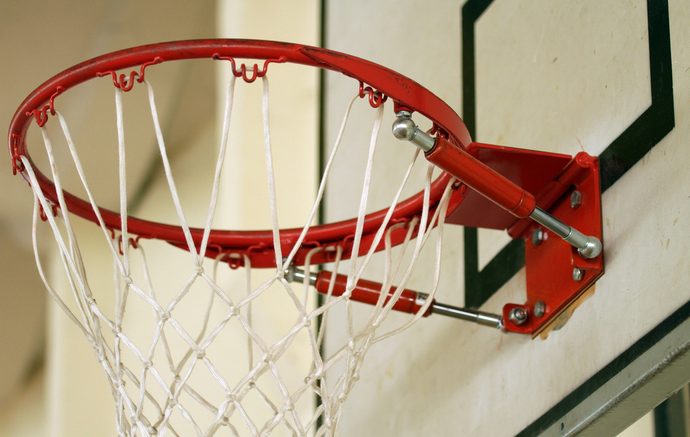Julieta Rodrigo // Staff Writer
With March Madness around the corner, much of the recent attention in sports news has focused on men’s basketball. The NCAA Men’s Division I Tournament is set to begin March 14 and end on April 3, and sportscasters are abuzz with excitement.
But what about the women?
The NCAA Women’s Division I Tournament, which will be played between March 24 and April 2, hasn’t been receiving much attention, and likely won’t until the final four stages.
Discrepancies like these occur often in the field of collegiate athletics, despite the successes that laws like Title IX have had in the last four decades.
Title IX, the 1972 federal law that mandated equal access for women in education, has helped decrease the gender divide in sports participation and funding. At the time Title IX was passed, the NCAA didn’t “offer scholarships to women or hold championship games for female teams”, according to The Atlantic.
The Women’s Sports Foundation reported that “the number of women playing at the college level has skyrocketed more than 600 percent” since Title IX’s passage.
Nevertheless, the disparity between female and male teams continues to exist. The problem was so severe that the Equity in Athletics Disclosure Act of 1994 (EADA) was passed to mandate that universities publish gender equity information concerning their athletic programs, according to the National Women’s Law Center.
This information include statistics on sports participation by gender, athletic scholarship dollars awarded to male and female athletes, average salaries of coaches for women’s and men’s teams, and recruitment and operating expenses for both teams.
For the 2014-2015 school year, FIU reported that 233 men and 235 women participated in the university’s athletic teams. The proportion of athletically-related student aid among women’s and men’s teams was even, with women receiving 51% of all aid and men receiving 49%.
With such an even divide among men and women in teams, one would expect a generally uniform distribution of recruitment efforts, coaching salary, and operating expenses on both sides.
However, most of these factors revealed significant discrepancies between the female and male teams.
For starters, the recruiting expenses for men’s teams were $304,052, with women’s teams at $106,574.
In the men’s teams, all five head coaches were male, while the women’s teams had five head male coaches and four female. The average institutional salary per head coach on the men’s team was $258,504, while the women’s team’s head coach average was $87,550. As for assistant coaches, the average institutional salary for men’s teams was $107,878, with women’s teams averaging $43,779.
Angela Gonzales, a sophomore hospitality major, said she hopes this gender discrepancy will decrease in the coming year.
“I love attending the women’s games,” she said. “It’s evident to see how hard they’ve worked all season, and the female players and coaches both deserve to get more recognition.”
Bryan Portilla, a senior engineering major, agrees. He told Student Media he’s “proud” that FIU has an equal distribution of male and female players on athletic teams, but more work needs to done.
“These women are strong and intelligent and dedicated, and I know our FIU family can do better to improve their professional prospects,” he said.
Granted, some important factors need to be considered when analyzing this data. For instance, football is generally given a higher priority among universities and has a higher fan turnout, and is thus granted more funding.
However, it is imperative that FIU provide all of its athletes and coaches equal opportunities and resources, so that they may achieve their full potential and truly represent our university on a national or international stage.
We as students have a responsibility to support each other, and attend games whenever we can. We have to show all of our athletes that their hard work and dedication to their sports is appreciated, and that our Panther family wants to see them succeed.


Be the first to comment on "It’s time to even the playing field in collegiate athletics"